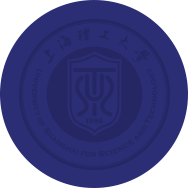On April 21, the first Shanghai Public Diplomacy Forum and the Appointment Ceremony of the Advisory Committee of Experts was held at the University of Shanghai for Science and Technology. Over 60 representatives from academic circles, politics, enterprises and mediag athered here to conduct in-depth discussions on the theme of “Common Destiny—China and the World.”
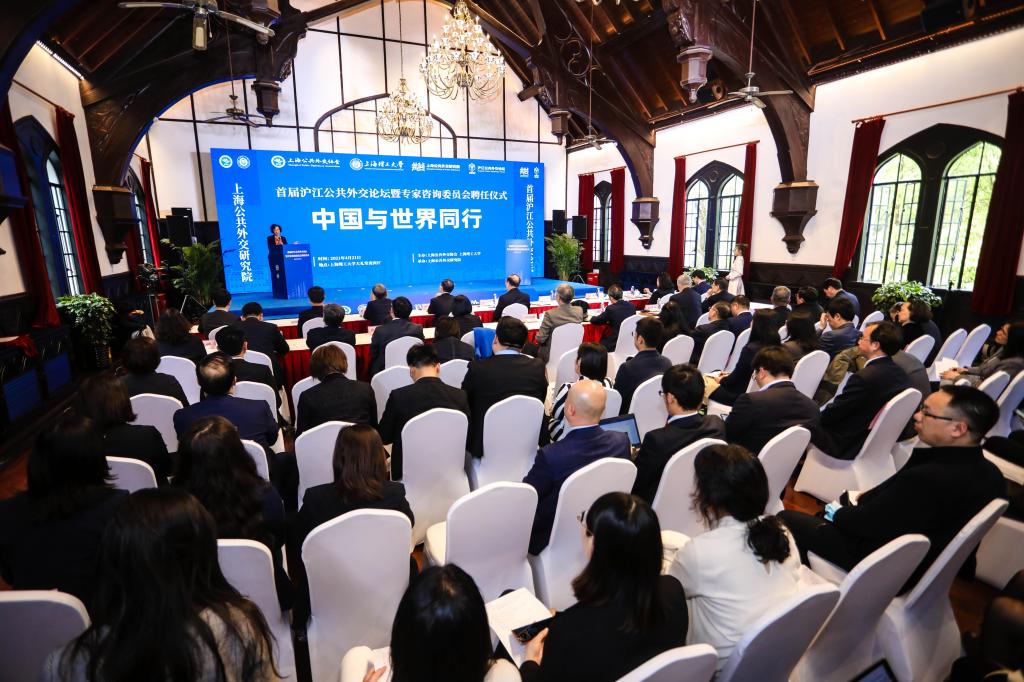
Ding Xiaodong, president of USST, delivered a speech, recalling the background of the establishment of the Shanghai Institute of Public Diplomacy and its various ongoing projects. Since the opening ceremony in September 2020, the Shanghai Institute of Public Diplomacy has already sponsored a series of seminars and academic lectures. What’s more, the Institute is planning to translate a series of public diplomacy documents, aiming to provide reference for others to further expand public diplomatic activities in Shanghai and the whole country. Wang Ping, director of the Shanghai Municipal Education Commission, pointed out in his speech that the work carried out by the Shanghai Institute of Public Diplomacy will help Shanghai universities to achieve new breakthroughs in talent training and scientific research, and help promote Shanghai’s public diplomacy to a new level.
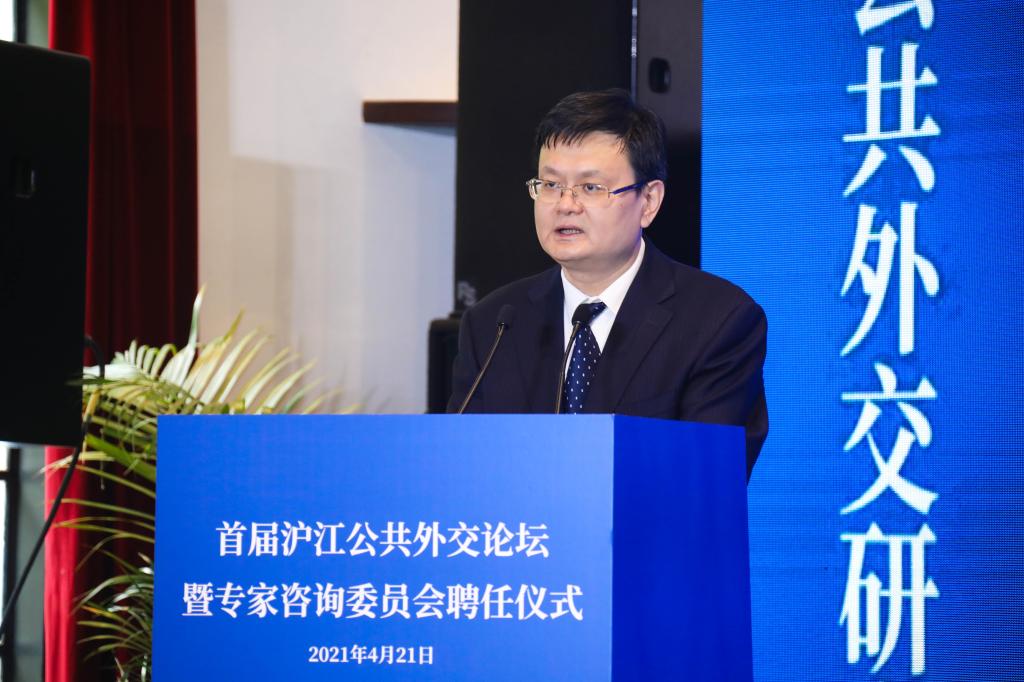
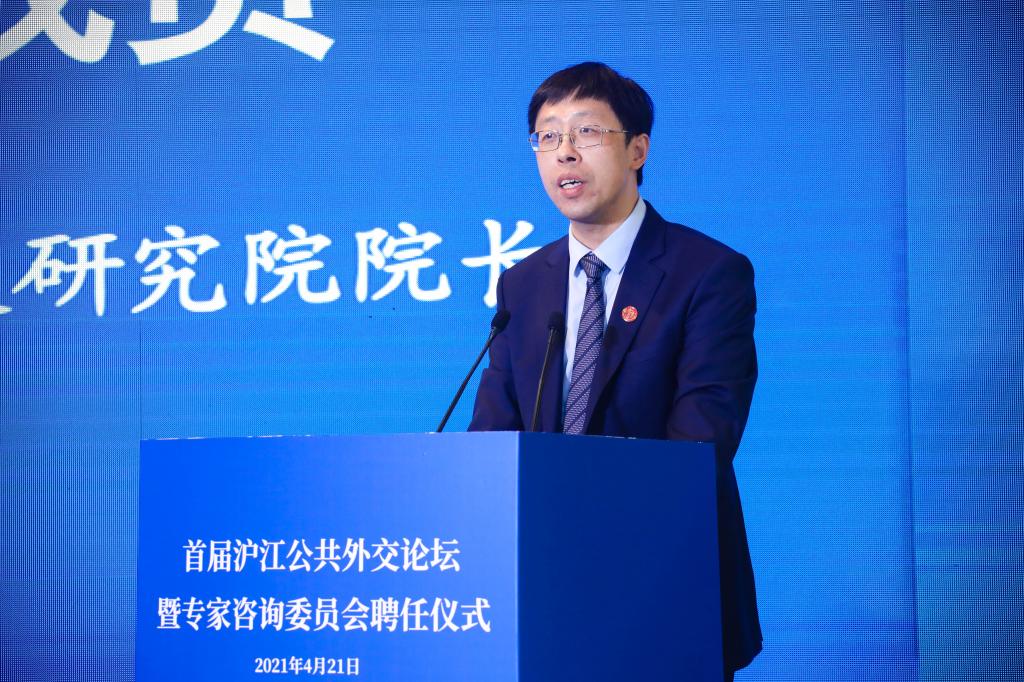
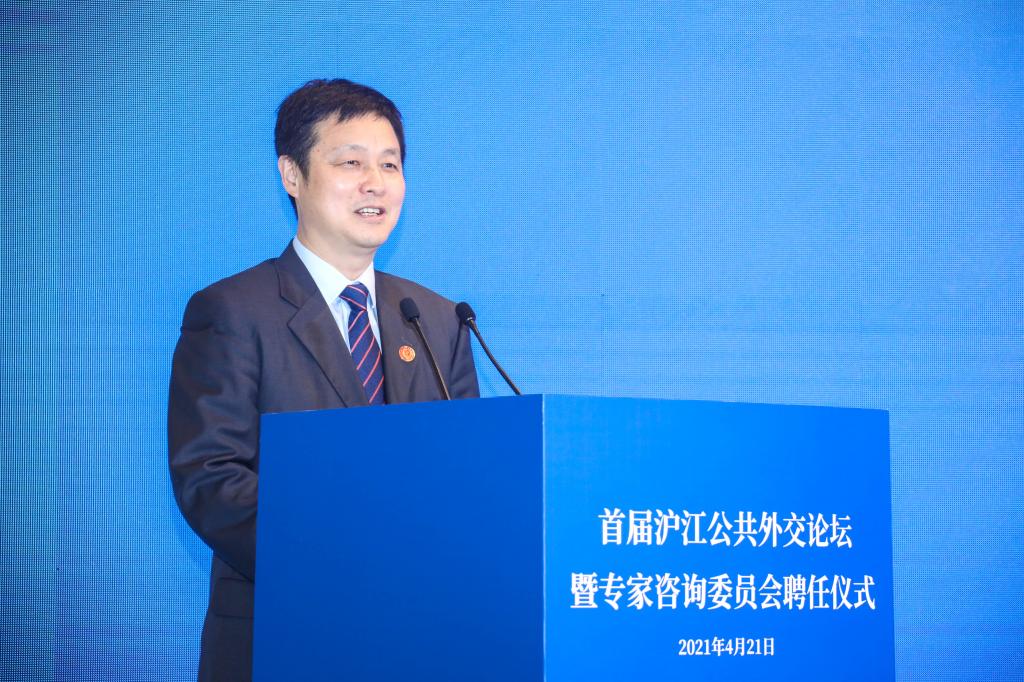
In the history of USST for more than 100 years, many talents have emerged, dedicated to and caring about public diplomacy. “Standing at the intersection of the two centenary goals, we are also witnessing major changes unfolding in our world. Dealing well with public diplomacy is both a task and a challenge,” said Li Daoyu, an English major graduate of the University of Shanghai-the predecessor of the University of Shanghai for Science and Technology, as well as former Permanent Representative to the United Nations and Ambassador to the United States, while making a speech via video.
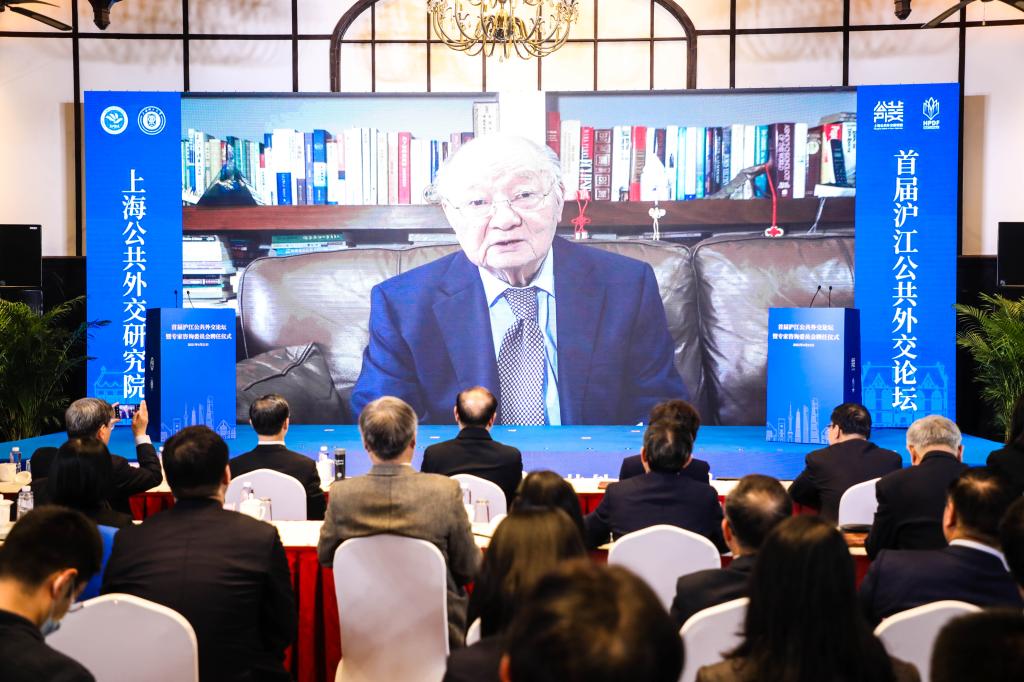
Li Shaohua, a 1996 undergraduate from the College of Foreign Languages, USST and chairman of Shanghai Shuicheng Environmental Protection Technology Co., Ltd., has been concerned about the development of his alma mater after his graduation. He has made a generous donation of 1.15 million yuan to USST to support the relevant work of the Shanghai Institute of Public Diplomacy. It is also of great significance as it is the first such a large sum received at the USST 115th anniversary.

At the meeting, the Advisory Committee of Experts at the Shanghai Academy of Public Diplomacy made its “debut” and the think tank is composed of well-known domestic experts and scholars from various relevant fields. Zhao Qizheng, chairman of the First Advisory Committee of Experts of the Shanghai Institute of Public Diplomacy and former Minister of the State Council Information Office of China, said that the most distinct feature of public diplomacy lies in the public’s active participation. As important subjects of public diplomacy, universities are duty bound to promote theoretical research and popularize the public awareness and practice on public diplomacy. Colleges and universities need to systematically improve the public diplomatic literacy of teachers and students in various ways, and recount true Chinese stories to more foreign citizens. Teachers and students need to study public diplomacy issues to provide theoretical support for a wider range of public diplomacy practices. Yuan Ming, a member of the first Advisory Committee of Experts of the Shanghai Institute of Public Diplomacy and Dean of Yenching Academy of Peking University, said: “The development of relations between countries requires friendly cooperation between governments as well as friendly communications between their peoples. To achieve the goal of performing the public diplomacy practice to the extent of nurturing understanding spontaneously and quietly, we must make full use of the wisdom and competence of our outstanding younger generation. Though it seems that ordinary people cannot influence international issues, everyone can contribute their tiny bit to make the world more and more beautiful by doing small things in our daily life.” Other members of the Advisory Committee said, “China and the world share the same destiny, and education shoulders an important mission, that is, to train youths in the New Era who are knowledgeable, insightful and willing to take an act part in the practice of public diplomacy, and contribute their due to the development of public diplomacy.”

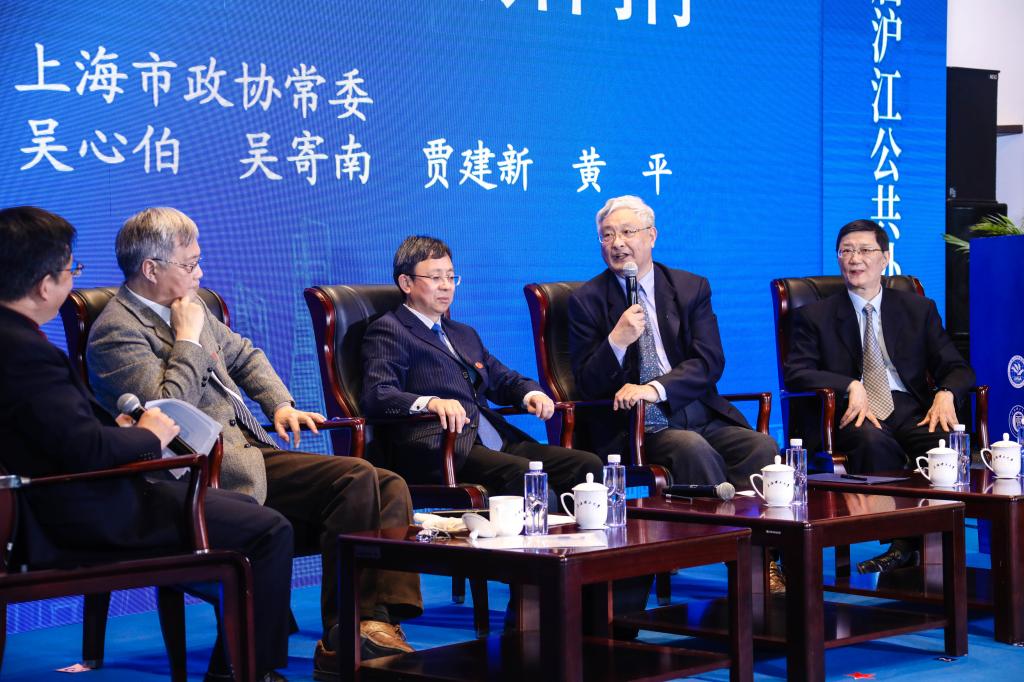
At the end of the forum, Zhou Hanmin, chairman of the Shanghai Institute of Public Diplomacy, made a conclusion speech. He told three stories to point out that public diplomacy must be committed to building consensus, and that we should stay perseverant and open-minded when faced with the strategic overall situation of the great rejuvenation of the Chinese nation and the unprecedented major changes unfolding in our world and fight for the idea of the people’s supremacy.
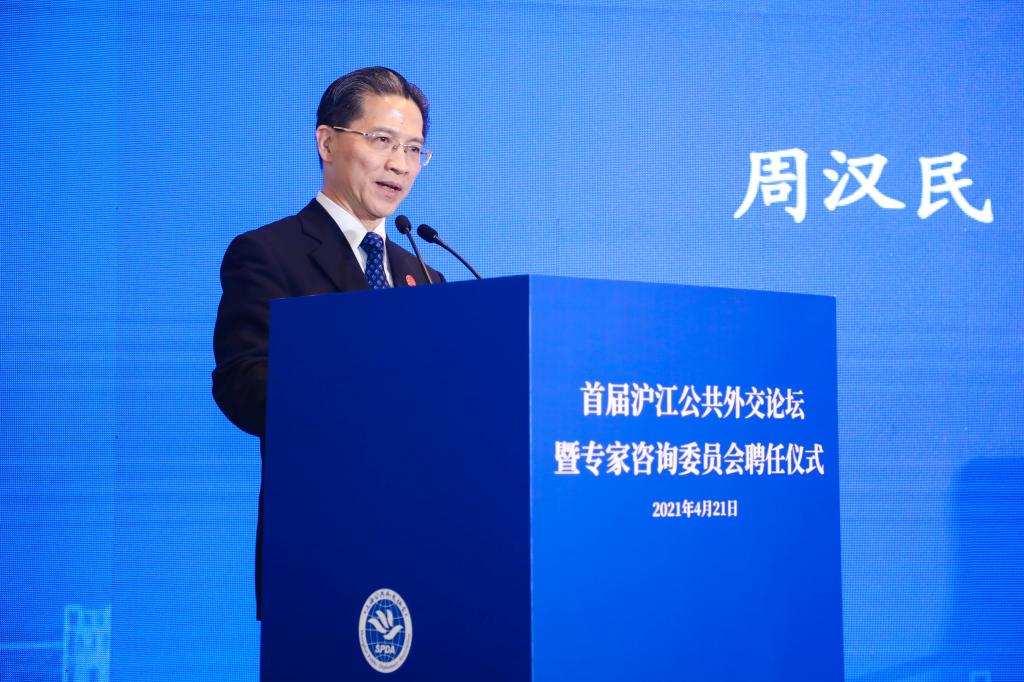
Jointly established by the Shanghai Public Diplomacy Association and USST, the Shanghai Institute of Public Diplomacy also functions as a theoretical research institution, a university think tank and a talent training base. At present, the global pandemic of COVID-19 has accelerated the major international changes, in which diversified and effective public diplomacy plays an irreplaceable role. It is of great practical significance to hold the first Shanghai Public Diplomacy Forum at this critical time.


